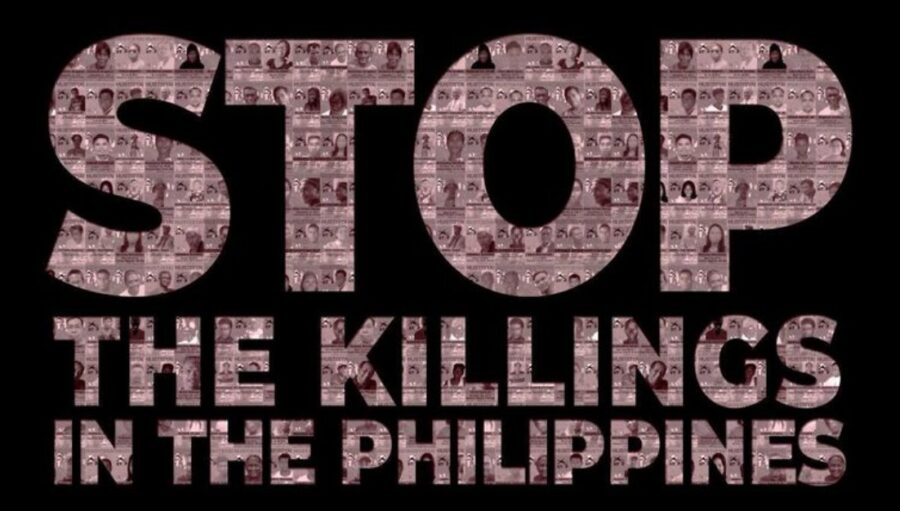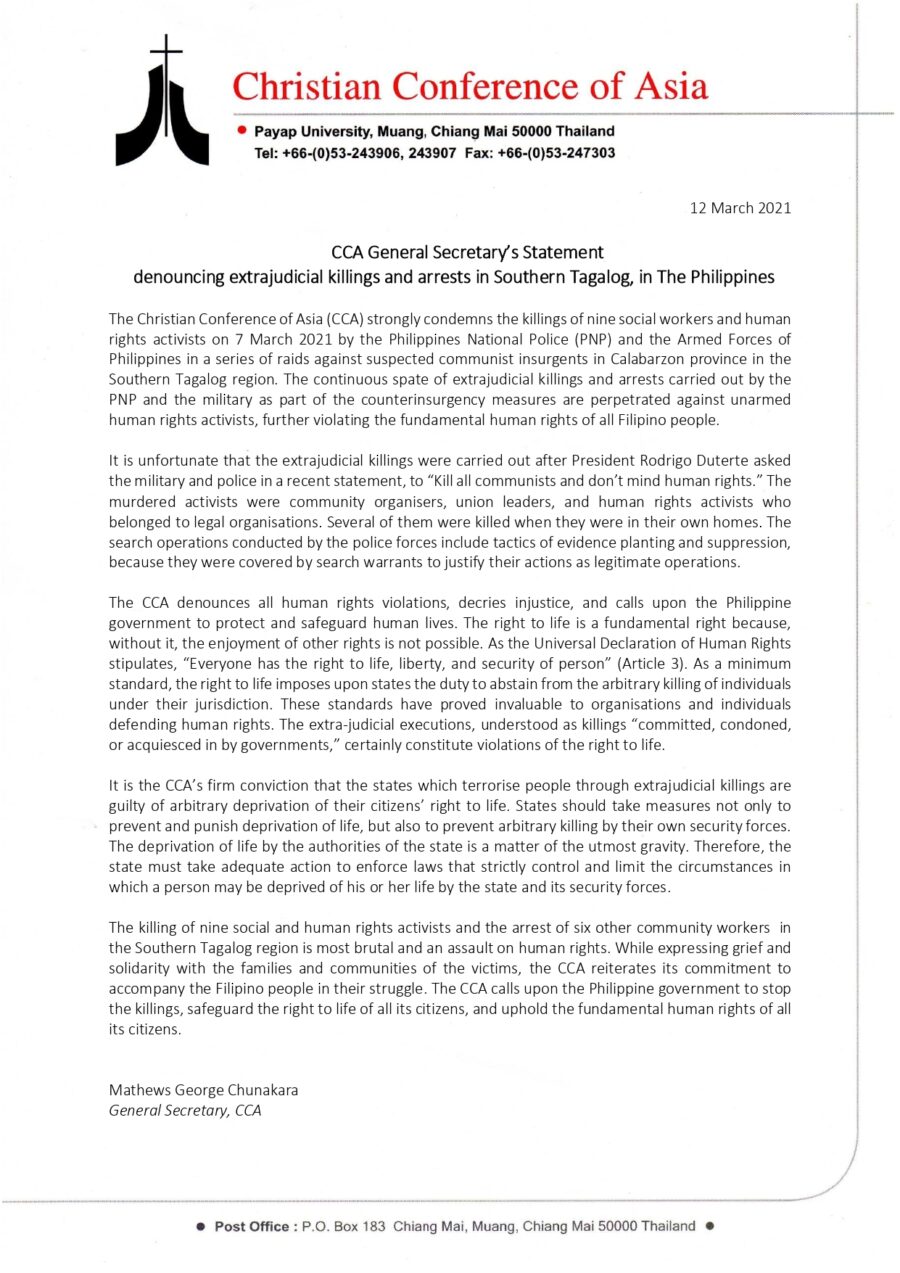CCA General Secretary denounces spate of extrajudicial killings in the Philippines
 The General Secretary of the Christian Conference of Asia (CCA), Dr Mathews George Chunakara, released a statement denouncing the extrajudicial killings and arrests in Southern Tagalog, in the Philippines.
The General Secretary of the Christian Conference of Asia (CCA), Dr Mathews George Chunakara, released a statement denouncing the extrajudicial killings and arrests in Southern Tagalog, in the Philippines.
On 7 March 2021, nine social workers and human rights activists were killed by the Philippines National Police (PNP) and the Armed Forces of the Philippines in a series of raids against suspected “communist insurgents” in Southern Tagalog. All nine activists who were killed belonged to organisations that had been ‘red-tagged’ by the government.
Such actions are carried out as part of counterinsurgency measures, perpetrated against unarmed human rights activists, further violating the fundamental human rights of all Filipino people. The search operations carried out by the police forces often include tactics of evidence planting and suppression with bogus search warrants to justify their actions as legitimate operations.
Dr Mathews George Chunakara in the statement said, “The CCA denounces all human rights violations, decries injustice, and calls upon the Philippines government to protect and safeguard human lives… It is the CCA’s firm conviction that the states which terrorise people through extrajudicial killings are guilty of arbitrary deprivation of their citizens’ right to life.”
In the statement, the CCA General Secretary further observed, “The killing of the nine social and human rights activists and the arrest of six other community workers in the Southern Tagalog region is most brutal and an assault on human rights. While expressing grief and solidarity with the families and communities of the victims, the CCA reiterates its commitment to accompany the Filipino people in their struggle.”
The full text of the CCA General Secretary’s Statement denouncing extrajudicial killings and arrests in Southern Tagalog in the Philippines can be found here:











